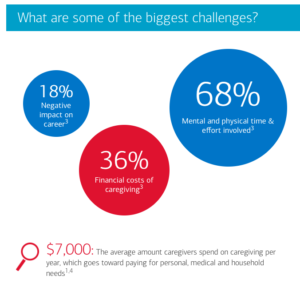As a resident at Shell Point Retirement Community (SPRC), I have had a number of interesting, eye-opening conversations with my neighbors. Many of them believe that living in a Continuing Care Retirement Community (CCRC) is an opportunity stop paying for their long term care insurance (LTCi), now that their care is provided by the facility. On the contrary, there are plenty of reasons you’ll want to continue maintaining your LTC insurance in a CCRC.
Before you make this potentially dangerous decision for yourself or your parents, take a moment to review the following list of expenses that can by paid for by LTC insurance. Without the benefit of LTCi, these costs will be paid out-of-pocket by the resident or family.
1. Paying for Home Care
Sally’s mother lived in SPRC for 26 years. Although she needed care, her mother did not own long term care insurance (LTCi), since she believed the CCRC would cover the costs of her needs. Over the years, Sally’s mother was unwilling to accept the fact that her health was deteriorating and that she needed additional care. Ideally, she would have moved to the on-site assisted living facility or elected for home care. She would not admit this.
The majority of CCRC’s pay for assisted living or nursing home care, but they don’t pay for home care.
As you’ll hear in Sally’s video testimony below, her mother was unwilling to pay for home care, even though she could afford it. She wanted to preserve her estate for the benefit of her children. Her situation got so dangerous that Sally had to enlist intervention by a professional to “force” her mother into better care. Sally realizes now that the entire situation could have been avoided if her mother had been covered by a LTCi policy.
2. One More Story About Needing Home Care
When Hugh and his wife moved here to SPRC, they assumed that they no longer needed their LTC insurance in a CCRC, since the cost of assisted living and nursing care was included. So they stopped paying their monthly LTCi premiums and let their policies lapse.
In her last months, Hugh’s wife became extremely disabled, needing care above and beyond what the assisted living facility could legally provide. Hugh was advised to move his wife to the on-site nursing home so she could receive the care she needed.
While life in the assisted living center provides a cheery, home-like atmosphere, the nursing home is more sterile and institutional. Hugh just couldn’t bear moving his wife into the nursing home. So he chose to keep her in the assisted living facility and supplement her care with 24 hour a day caregivers.
Hugh had to pay for his wife’s caregivers out of his own pocket. As he shared his story with me, I told him about my work. He recognized how much he regretted giving up their long term care insurance. He knows that if they’d kept their policies active, the cost needed for his wife’s additional care would have been covered.
3. Visiting Your Hairdresser
We often see wheelchair or walker-bound residents in our beauty salons, restaurants, walkways, or swimming pool. These are typically assisted living residents. They’re accompanied by scrub-clad caregivers. The cost of this personalized care is paid out-of-pocket and can really add up over time. With proper planning, LTCi can often help pay for these costs.
4. Meals Aren’t Free
You had to eat before, and you continue to need to eat when you reside in an assisted living facility. Eating is not part of long term care. Your high quality care is paid by the CCRC, but meals are not included. In my community, for example, there is an additional charge of approximately $1,000/month to cover meals. LTCi can help pay for this.
5. Apartment Space
At our CCRC, if you live in a fairly small home, you’ll be assigned a smaller assisted living apartment. If, however, you want to upgrade and move into a larger apartment, LTC insurance can often pay for the additional cost of a larger assisted living apartment at the CCRC. That’s right! Your long term care insurance payments could help cover the extra charges for more spacious living or a better view.
6. The Unexpected Need for an Off-site Facility
Nancy’s husband was stricken with Lewy Body Dementia. If this sounds familiar, this is the same illness that actor Robin Williams suffered from. This form of dementia can damage thinking and alertness. Symptoms can include physical stiffness, hallucinations and even violence.
As a result of his condition, Nancy’s husband became physically violent and needed more care than SPRC could safely provide. Despite their best efforts, SPRC was unable to keep him on-site. Nancy was forced to find an off-site facility that could properly care for her husband. Those unexpected costs (paid without the benefit of LTCi coverage) nearly demolished her savings.
Hold On to Your LTCi
Moving to a Continuing Care Retirement Community (CCRC) does not mean it’s time to end your long term care insurance policy. In fact, this may be the time you most want that peace of mind.
Now is the time to start planning for your future needs. Click here to receive a free, no-obligation quote for your own LTCi policy.






 Thanks for visiting my site! I like hearing from you!
Thanks for visiting my site! I like hearing from you!